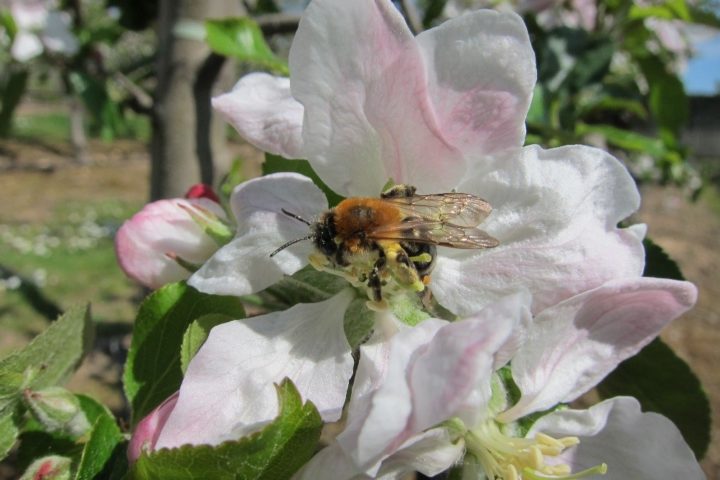The pollinating insects that we rely on for food crops have a more secure future thanks to the research and UN policy work of a Reading bee expert.
Bees and other pollinators are in trouble because of climate change and habitat loss – which is bad news for many reasons, least not because we rely on them for many food crops. Years of painstaking research into pollinators’ status, trends and value carried out by Reading’s Professor Simon Potts has played a big part in getting world leaders to sit up and recognise this, spurring international commitments to protect them.
Potts’ sustained research – more than 200 research publications – has investigated how bumblebees are being affected by climate change across the whole of North America and Europe. He has studied the effect of insecticides on crop pollination, revealed the part played by different insect species in crop pollination at the scale of continents and looked at the pros and cons of various measures to protect them.
The work formed a substantial part of the first complete assessment of the world’s pollinators, laying out how we rely on these insects for crop production and the reasons behind their plummeting numbers. The assessment report published by the UN’s Intergovernmental Science-Policy Platform on Biodiversity and Ecosystem Services (IPBES), which Professor Potts co-chaired, was endorsed by all 196 signatory governments, and it was adopted into the UN Convention on Biological Diversity, along with recommended actions – such as promoting pollinator-friendly habitats.
Worldwide, 30 countries have now joined the Promote Pollinators coalition, and 13 have established national pollinator strategies, using the IBPES report as their primary guidance. This is driving action by growers, land managers, beekeepers, government agencies, NGOs and the public, helping to safeguard the sustainability of global food production.
Find out more
Research highlight: Saving Britain’s pollinators
How to save the bees (YouTube video 2m45s)
Saving bees secures and jobs, say authors of UN report (press release, Nov 2016)
The Bees’ Needs: Saving Britain’s pollinators at Carnabee Street (blog, July 2019)
Reading bee team at Kew Gardens (YouTube video 1m10s)
View the full impact case study on the REF 2021 website: Driving a step change in international policy to protect pollinators.

